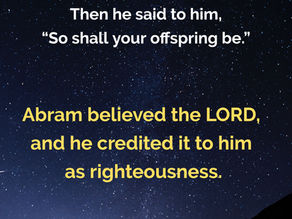Matthew 16:13-20 - The Gates of Hades
- Chad Werkhoven
- Jun 9, 2025
- 4 min read
Updated: Jun 10, 2025
Not even the gates of Hades can overcome the Church Christ is building!

Matthew 16:13-20 (NIV)
13 When Jesus came to the region of Caesarea Philippi, he asked his disciples, “Who do people say the Son of Man is?”
14 They replied, “Some say John the Baptist; others say Elijah; and still others, Jeremiah or one of the prophets.”
15 “But what about you?” he asked. “Who do you say I am?”
16 Simon Peter answered, “You are the Messiah, the Son of the living God.”
17 Jesus replied, “Blessed are you, Simon son of Jonah, for this was not revealed to you by flesh and blood, but by my Father in heaven. 18 And I tell you that you are Peter, and on this rock I will build my church, and the gates of Hades will not overcome it. 19 I will give you the keys of the kingdom of heaven; whatever you bind on earth will be bound in heaven, and whatever you loose on earth will be loosed in heaven.” 20 Then he ordered his disciples not to tell anyone that he was the Messiah.
Canons of Dordt
Point 2 - Limited Atonement
Article 9: The Fulfillment of God’s Plan
This plan,
arising out of God’s eternal love for the elect,
from the beginning of the world to the present time
has been powerfully carried out
and will also be carried out in the future,
the gates of hell seeking vainly to prevail against it.
As a result, the elect
are gathered into one, all in their own time,
and there is always a church of believers founded on Christ’s blood,
a church which steadfastly loves, persistently worships,
and here and in all eternity praises him as her Savior
who laid down his life for her on the cross,
as a bridegroom for his bride.
Summary
This section is a repost from May 22, 2023
Put yourself in the place of the disciples. Everything you've heard Jesus teach on has been mind blowing and has shattered nearly every preconceived notion that they had prior to meeting Him. So every time Jesus asked a question, they probably sweat bullets hoping that Jesus wouldn't pick them to answer, because chances are they'd get it wrong.
But here Jesus asks a question that's easy to answer: "who do others say that I am?" It's always easy to report what others say, so the disciples are quick to give an answer to this first question.
It's the second question that gets them. "Who do you say that I am?" You can imagine the awkward silence that followed the question. Finally the boldest of the group spoke up, and I don't think it was with a wavering voice. Peter finally gets it: "You are the Christ, the Son of the Living God."
Jesus rewards Peter's bravery and correct answer with a new name: Petros - the Rock. What comes next has been the subject of oceans of ink: "on this rock - petra - I will build my church." You can see the slight difference in the Greek words. Does this mean that Simon Peter is the rock that the church is built on, or is 'this rock' that Jesus refers to a different rock - perhaps Himself?
But focusing on the slight variation in wording misses the point of this passage. Don't miss Jesus' huge promise here: "I will build my church, and the gates of Hades will not overcome it." Peter plays an important role for sure in church history, but clearly the foundation, architect, builder and finisher of the Church is our Lord and Savior, Jesus the Christ, the Son of the Living God.
Dig Deeper
Jesus makes two very resolute claims that grab our attention today. First, He establishes that not only is He the architect of His church (ekklēsia, literally an assembly of people) but He's also the one actively building it.
This is a good reminder for preachers like me. My ego puffs up as the pews fill up, and then wonders what I'm doing wrong when the numbers fall back down. But we're not the builders of Christ's church; it's neither our perceived brilliance nor obvious incompetencies at work. We must simply be faithful to how Christ has called us to care for it.
Second, Jesus tells Peter, and by extension us, that not even the gates of Hades will overcome His Church. Once again, commentator NT France helps us understand what this means:
The gates of Hades is a metaphor for death... The gates thus represent the imprisoning power of death: death will not be able to imprison and hold the church of the living God. The metaphor... does not encourage the suggestion of some interpreters that Hades represents not death but the demonic powers of the underworld, which are then pictured as making an eschatological [end times] assault on the church. Still less does it support the romantic imagery, sometimes derived from the traditional but incorrect translation gates of hell, of the church as a victorious army storming the citadel of the devil.
The imagery is rather of death being unable to swallow up the new community which Jesus is building. It will never be destroyed.
ACKNOWLEDGE WHO GOD IS: Our Father, the Living God;
ALIGN YOUR LIFE WITH GOD'S WILL: Pray that you will be a faithful member of the Church that Christ continues to build;
ASK GOD FOR WHAT YOU NEED:
Read the New Testament in a year! Today: Ephesians 2



















I know you told us why Jesus instructed the disciples to keep a secret about Him being the Messiah. Refresh my memory. My apologies, thank you.